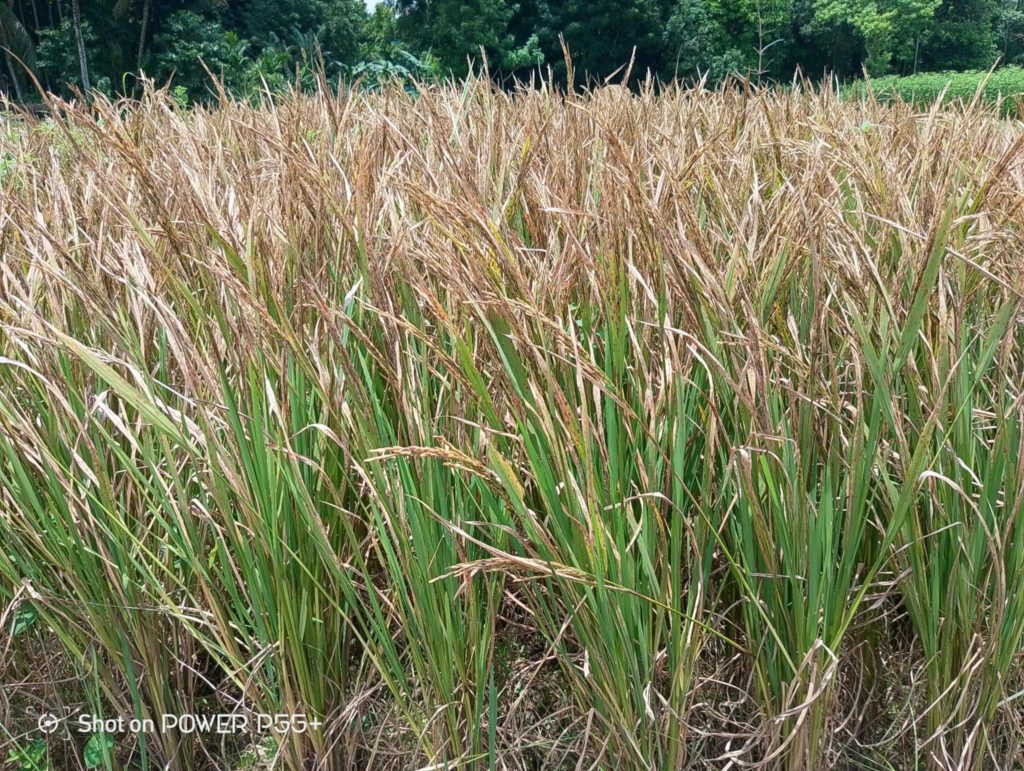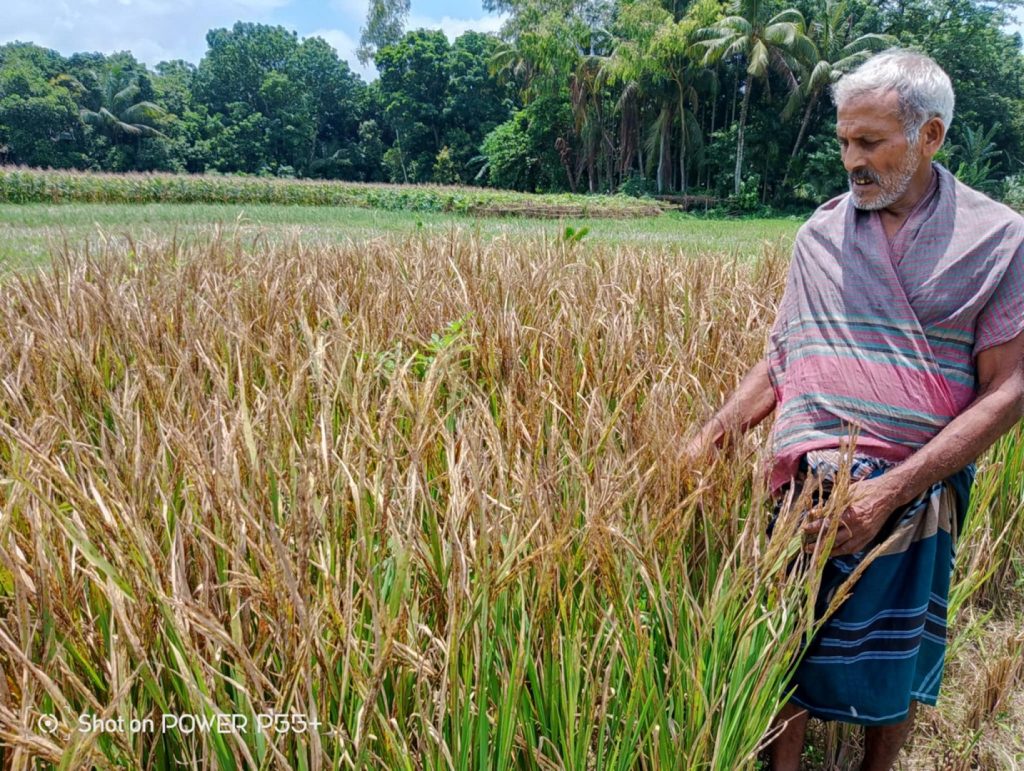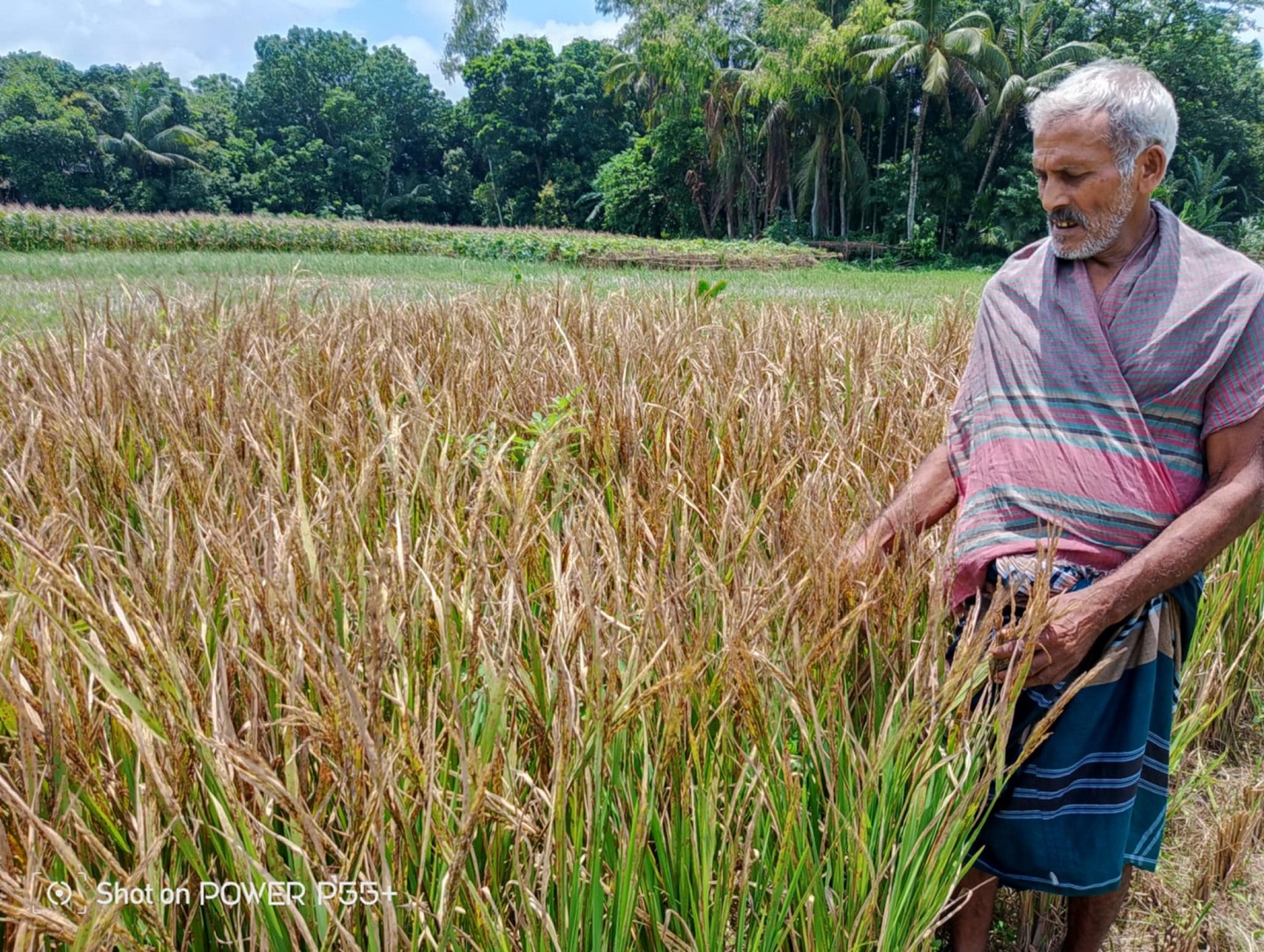By Sattaranjan Saha from Harirampur, Manikganj
For generations, the farmers of Borundi village in Hatipara Union, Manikganj Sadar, have cultivated rice using indigenous knowledge passed down over a century. But recent years have brought an alarming disruption during the crucial flowering stage of the crop, intense heat waves and prolonged dry spells have turned healthy rice fields into stretches of disappointment. Grains are not forming properly; instead, they remain empty which is locally known as chita.

Farmer Rouf Khan said, “This year, I cultivated BR-29 rice on 20 decimals of land, shared. I followed all the usual practices, irrigated regularly. The plants looked fine at first. But during the flowering stage in Baishakh and Joishtho, extreme heat and drought struck. The rice of my entire field turns sterile. I did not get a single grain, only husks.”
Such experiences are becoming common in the area. The rising temperature paired with erratic rainfall patterns has left many farmers helpless. In 2024 and again in 2025, the early summer months scorched fields and dried up surface water. Not only crops, but cattle, birds, and even human health suffered.
Padma Rani, another farmer of the area said, “Earlier we did not face this much heat. Now, when it rains, it pours. It destroys crops. Traditional seeds are disappearing. We cannot grow millet, sesame, lentils anymore. Even with vegetables, we grow more but earn less.”
With the objective to address these challenges, the Borundi Farmers’ Group, in collaboration with BARCIK, initiated a participatory rice research program. On the Borundi South field where farmers cultivated 70 varieties of rice during the Boro season. They observed the performance and selected drought-tolerant, productive varieties like Gosai, Sushil, M-252, Black Rice, Shuvlata, and Chinigura.

Farmer-researchers are now sharing their findings with other farmers, encouraging others to adopt climate-resilient farming. Instead of relying on modern high-input varieties that often fail under stress, they are returning to native varieties and traditional knowledge.
While climate change continues to challenge food security, the spirit of innovation and collaboration among farmers in Borundi offers a hopeful path forward where farmers, not just scientists, lead adaptation through experience, experimentation, and mutual learning.

